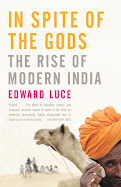GLOBALIZATION; SUCCESS OR FAILURE?
Furthermore..Rather than force an economic system on a country, Stiglitz advocates making trade more fair using various changes, some more agreeable to the advanced industrial nations than others. One example of a reform that would likely be unpopular with developed countries would be to treat developing countries differently in the drafting of international trade agreements. What Stiglitz means, is that this time around, the agreements should be tilted in favor of the developing countries, especially on topics such as agriculture, on which the vast majority of those in developing countries rely on. Making Globalization Work displays Stiglitz’ adept experience, as he identifies the precise issues in trade liberalization today. In chapter three, the following non-tariff barriers typically used by the advanced industrial countries to deceive trading ‘partners’ in international agreements are revealed: safeguards, dumping duties, technical barriers & the rules-of-origin. All of these non-tariff barriers are aimed at reducing or completely eliminating the imports of a country that threatens to compete with a nascent industry of a country.
In the reforming of international trade, Stiglitz restates the importance of good governance, saying, “The governance of international affairs is at the heart of the failures of globalization. The problems of unfairness start in the beginning: with the setting of the agenda. We have seen how the past focus on manufacturing has moved to high-skill services, capital flows, and intellectual property rights. A development-oriented trade agenda would be markedly different"(97).
Technology in The World is Flat is on display in amazing caliber almost everywhere that Friedman journeys, and just as well, in Making globalization Work , Stiglitz reaffirms the magnitude of possibility brought by technology can provide to the developing countries how are yet to enjoy it. Under the fourth chapter topic “Patents, Profits and People”, Stiglitz exposes the powerful peoples’ exploitation of patents and other intellectual property rights to make excessive profits in the name of giving merit where it is due. Intellectual property rights vary immensely from physical property rights =, because the former protects an intangible asset, making the boundaries of justice and injustice difficult to ascertain, he explains. In particular, the U.S and the E.U are using intellectual property rights to prevent developing nations from partaking in innovation, in order to extend the time span of profits and even to create monopolies. These intricacies may not have been obvious to Friedman as he surfed on a Japanese laptop available with only Microsoft software, but beyond the amazing flattening across the world, destructive factors like those discussed by Stiglitz continue to favor flattening in the favor of the prosperous.
As if the developing countries did not have enough challenges to rise above, Making Globalization Work reveals a distressing phenomenon; ‘the Natural Resource Curse’. It is a curse that befalls developing countries which are rich in natural resources, often richer than the developed countries’, but are unable to utilize these resources to rise to the same echelon. Paradoxically, Stiglitz describes these countries as being “wealthy countries with poor people”, something which he says ‘provides greater insight into the failures of globalization and its possible remedies’ (135). He goes on to diagnose the curse as typically having two major causes; the misappropriation of public wealth, often followed by the reckless investment of the garnered wealth by the few who control it. The prescription bears seven measures that address everything from environmental damage to eliminating the great evil; corruption.
More on Friedman
TBC...
More on Friedman
TBC...








No comments:
Post a Comment